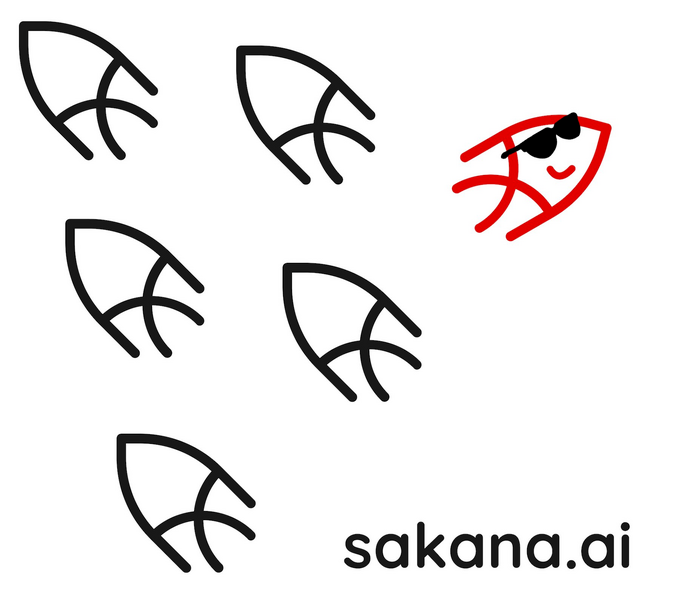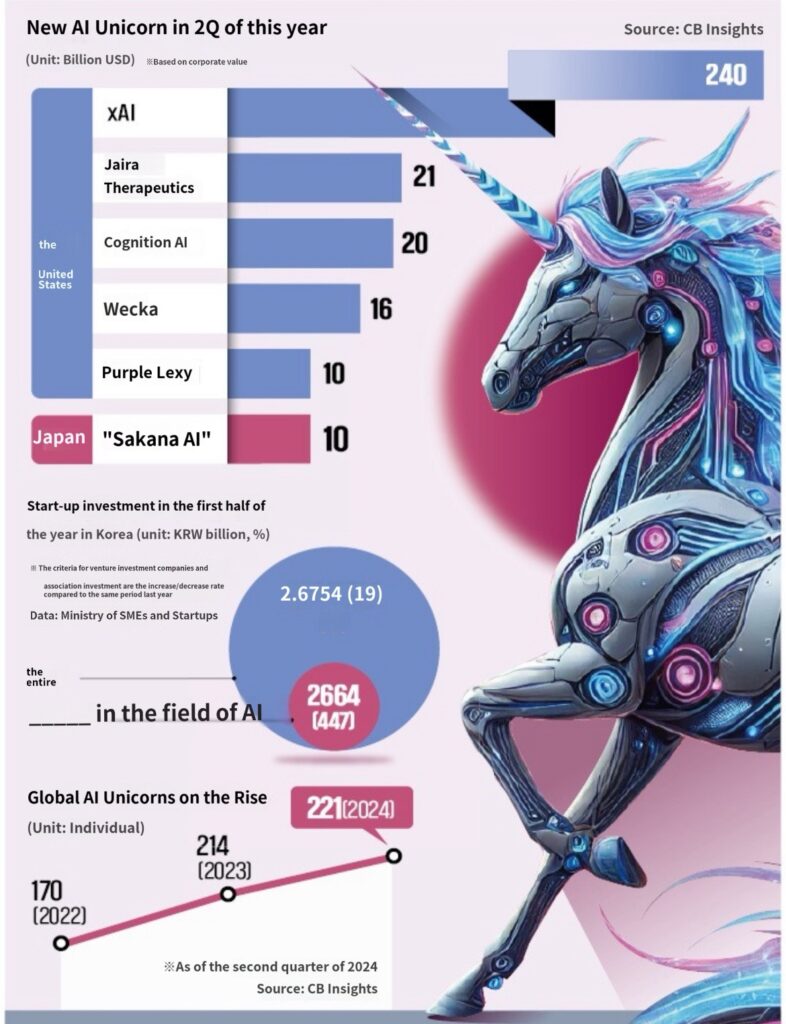
Artificial intelligence (AI) startup Sakana AI unveiled its “AI Scientist” on the 12th. It is a solution that AI conducts science-related research independently using a large-scale language model (LLM). AI Scientists automatically process all scientific research processes, including idea creation, experimentation, summary of results, thesis writing and review. Industry sources said, “AI has reached the stage of developing a better version on its own.” Another reason why Sakana AI is drawing attention is that it is a company from Japan, which was considered an AI barren land. According to the industry on the 18th, the Japanese government has recently strengthened support for its AI start-ups to grow the AI industry. Recently, it has succeeded in raising its second-year AI start-up into a unicorn company (a non-listed company with an enterprise value of more than $1 billion).
According to CB Insights, a startup analysis firm, six promising AI startups rose to the ranks of unicorn companies in the second quarter of this year. Five are American companies, including xAI, Jaira Therapeutics, and Cognition AI. The other is Japanese LLM startup Sakana AI.
Sakana AI became a unicorn company in less than a year since its establishment in July last year. Lux Capital and Cosla Ventures, two renowned U.S. venture capitalists, have invested in the venture capital. Japanese IT giants such as NTT, KDDI and Sony have also joined the investment. Global AI industry insiders, including Google’s chief scientist Jeff Dean and Hugging Face founder Clement Delange, have also started investing from the seed stage.
Sakana AI is highly competitive. Ryan Jones, a former AI researcher at Google, participated as co-founder. Jones is one of the authors of “Attention is all you need,” a paper that first proposed an AI algorithm called “Transformer,” which is the foundation of recent AI innovation. Other co-founders such as David Ha and Robert Lanke are also foreigners from Google. Japanese co-founders include Ren Ito, who served as the European branch manager of the Japanese trading platform company Merukari. The company name “Sakana” comes from the Japanese word for “fish.” The Japanese government’s full support is also behind the rapid growth of Sakana AI. Japan is actively seeking to attract overseas talent to strengthen its competitiveness in the AI industry.
For starters, the government eased restrictions on foreign start-ups. Last year, it lowered the visa requirement to allow foreigners to stay for two years if their business plan is approved without conditions such as office space or investment. In the past, foreigners had to have an office, two or more full-time employees and investment of over 5 million yen in order to conduct business in Japan. Last year, it also newly established a “special high-level talent” visa, which allows five-year visas to overseas talent immediately.

Japan has also secured high-performance graphics processing units (GPUs), which are in short supply worldwide, and is providing free support. Sakana AI also solved GPU problems through the Japanese government’s Generative AI Development Assistance Program (GENIAC). High-performance GPUs such as Nvidia’s H100 are essential for AI technology development, but it costs tens of billions of won to secure related infrastructure. It is impossible for early start-ups to have their own budgets.
There are no AI unicorn companies in Korea yet. In contrast, there are also AI unicorn companies in Israel and Singapore, where the GDP is smaller than that of Korea. The outflow of AI talent is larger than inflow. According to the Center for Human-Centered AI (HAI) at Stanford University, Korea had the third largest outflow of AI talent after India and Israel last year.
EJ SONG
US ASIA JOURNAL



